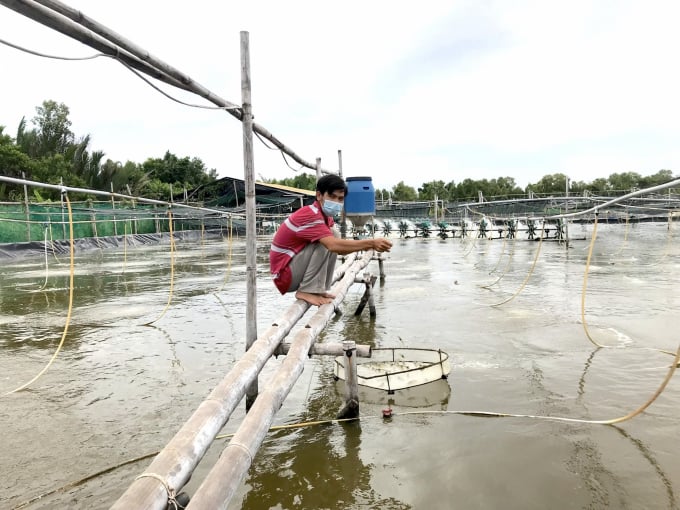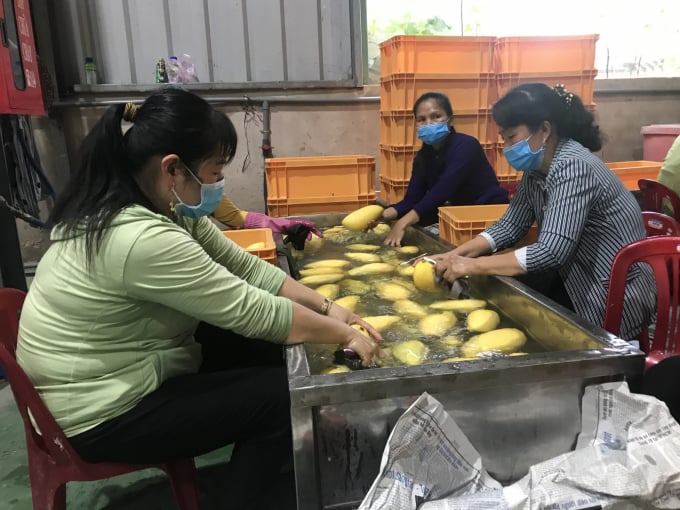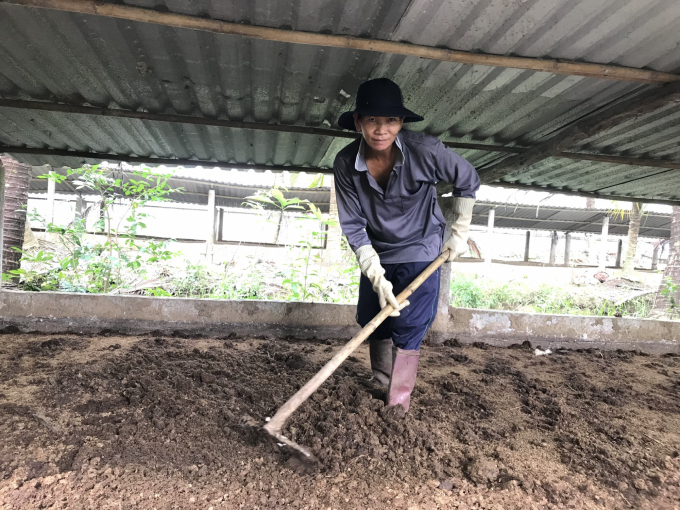May 30, 2025 | 20:52 GMT +7
May 30, 2025 | 20:52 GMT +7
Hotline: 0913.378.918
May 30, 2025 | 20:52 GMT +7
Hotline: 0913.378.918
Vietnam is one of the world's leaders in agriculture. The Mekong Delta is known for its rice fields (1.6 million hectares), fruit trees (over 360,000 hectares), and seafood (over 900,000 ha of farming area). Additionally, husbandry is thriving, which includes chicken, pig, cow, and goat farming... As a result, agricultural production generates a massive amount of by-products and wastes.

The Mekong Delta has strengths in agricultural production, with a huge source of waste by-products. Photo: Minh Dam.
Numerous techniques for exploitation, recycling, and processing into products have added value in the past, but none have accomplished the full potential of these by-products. Dr. Nguyen Thi Ngoc Truc, deputy head of the Southern Fruit Research Institute's Agronomy Faculty, said that "in fisheries, shrimp and crab shells are abundant sources of Chitosan extract. Chitosan derived from aquatic items is very beneficial when used in agriculture."
Chitosan is a chemical that, according to Truc, acts as a fertilizer, biological fungicide, and biological pesticide. It even functions as a nematode killer in the soil. At the moment, this active component is quite effective but not completely exploited.
"By using nutrients from seeds and fruits, we contribute to the earth's sustainability by returning the leftover portion to the soil. We grind it in order for it to decompose quickly. Then it is cultured with probiotics to create a product that passes agricultural requirements," said microbiologist Dr. Nguyen Thi Ngoc Truc.
Straws of all sorts, durian peel, mango, water hyacinth, among others are also an incredibly significant resource in the agriculture area, as they replace the soil with organic matter. We do not have to discard anything as a result of this circular agricultural production.
Dr. Nguyen Thi Ngoc Truc
Mr. Doan Van Sang, director of Cat Tuong agricultural processing facility in Dao Thanh commune, My Tho city, Tien Giang province, explains that byproducts such as mango peels, damaged dragon fruit, and durian skins... cost the firm a lot of money to manage since they are considered trash.

Preliminary processing of mangoes at Cat Tuong agricultural processing factory. Photo: Minh Dam.
Businesses are delighted that the Southern Fruit Institute offered the technique of bio-organic composting these wastes. Because the firm does not spend a fortune on waste treatment, it not only has a valuable supply of manure for fertilizing over 100 hectares of dragon fruit trees and hydroponic vegetables. Currently, the firm has composted and processed over 100 tons of mango peels into very efficient bio-organic fertilizer.
Mr. Doan Van Sang said, "I believe that this approach fully utilizes organic waste, hence reducing manufacturing costs and efficiently addressing environmental degradation." Initially, a few days could not be managed in time, resulting in a few complications that made life a little more difficult for those around. However, with the assistance of experts, the functional sector and the general public have recognized that these organic compounds are not only non-toxic but also an excellent source of fertilizer.
Not only does the Cat Tuong firm uses bio-organic compost made from mango peels, but another enterprise in the area of mango processing for export in Dong Thap province also uses the Southern Fruit Institute's technical approach. Additionally, the representative of this organization said that it is very cost-efficient since there is no expense associated with transporting it to the dump.
Trang Trai Sach Joint Stock Company (Chau Thanh District, Tien Giang Province) had already established a profitable company based on the concept of converting cow manure into vermicompost, which is worth hundreds of times its weight in clean soil.
Mr. Nguyen Cong Vinh, the business's director, said that the first clean thing he did was to handle agricultural wastes, convert them into useful goods, and address rural environmental degradation caused by animal rearing. As a result, he learned how to raise earthworms, as the worms convert organic waste into nutritious fertilizer.

Production of vermicompost at Trang Trai Sach Joint Stock Company (Tien Giang). Photo: Minh Dam.
Mr. Vinh's procedure involves the processing of waste materials such as cow manure, chicken manure, pig manure, and damaged vegetables. He got vegetable protein using this approach. Then, in conjunction with probiotics, use them to produce worms. Vermicompost, mealworms, seed worms, and clean soil are among his output goods. These are high-demand products on the market.
Vinh's farm is now connected to hundreds of farmers in the Mekong Delta in order to manufacture vermicompost from organic waste, particularly cow manure. Farms use trash from their family's agricultural activity at the linking sites in addition to purchasing garbage from neighboring farmers, greatly lowering environmental pollution, particularly during the rainy season.
Notably, the majority of farming families who engage in worm farming in conjunction with their companies earn a large amount of money, often about VND 4-5 million per month for an area of around 100 meters square.
Currently, the treatment and usage of organic waste in agricultural production as microbial organic fertilizer is an efficient technique to harness this important resource. This is a strategy to assist firms in lowering their manufacturing costs, particularly environmental expenses.
Additionally, businesses have a vast supply of fertilizer that they may reinvest in manufacturing or sell to recoup expenditures. As a result, agricultural waste treatment methods are protected and maximized.
Translated by Linh Linh

(VAN) Several scientists and farmers are experimenting with soil treatment in some key durian-growing regions such as Cai Lay (Tien Giang), Dak Song, Gia Nghia, and Dak R’lap (Dak Nong).
/2025/05/25/4127-3-073637_820.jpg)
(VAN) Thanks to the promotion from an FAO-implemented project, vegetable production in greenhouses in Moc Chau has seen strong development, from 1.5 hectares in 2021 to nearly 50 hectares in 2024.

(VAN) FAO has recently supported USD 140,000 to implement the project 'Risk mitigation human-animal interface risks through disease control initiatives in pig farming.'

(VAN) The People's Committee of Tra Vinh province has approved an adjustment to the investment policy for the Green Hydrogen Plant project, increasing its area to approximately 52.76 hectares.
![Reducing emissions from rice fields: [2] Farmers’ commitment to the soil](https://t.ex-cdn.com/nongnghiepmoitruong.vn/608w/files/news/2025/05/05/dsc08881jpg-nongnghiep-140632.jpg)
(VAN) Clean rice cultivation model in Thuong Tan commune, Bac Tan Uyen district, is assisting local residents in achieving sustainable agriculture by substantially reducing costs, increasing productivity, and protecting the environment.

(VAN) At the conference to disseminate Resolution No. 68, AgriS introduced its digital agricultural ecosystem and reaffirmed its commitment to accompanying the Government in promoting private sector development and sustainable agriculture.

(VAN) 'Blue Ocean - Blue Foods' initiative is designed to restore marine ecosystems and establish sustainable livelihoods for local communities by cultivating a minimum of 1,000 hectares of cottonii seaweed in the first three years.